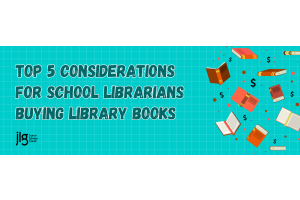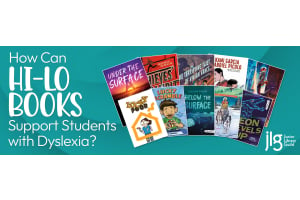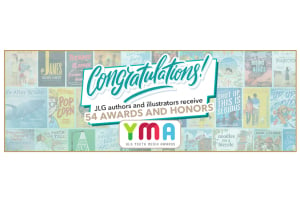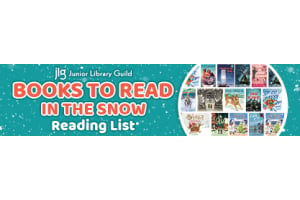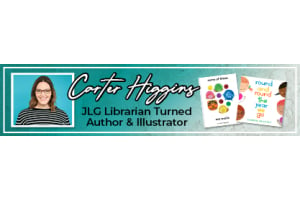Q & A with Sacha Lamb


While PRIDE Month is celebrated in June, JLG believes in celebrating and honoring diversity, equity, and inclusion every day—these are the elements that make our world a more accepting and empathetic place, and what better way to explore those themes than through books?
Sacha Lamb, an archivist, librarian, and author of When the Angels Left the Old Country, writes a queer, Jewish fantasy that transcends the concepts of identity, gender, and explores how both good and evil are necessary in our lives. When writing this story, they intended to combine all the literary elements that they love into one—and this ingenuity is what won the book a Stonewall, Sydney Taylor, and Printz Book Award! Sacha was kind enough to chat with JLG—even carving time out of their schedule right before traveling to ALA, where they will be accepting awards on their birthday! Happy Birthday Sacha!
This interview has something special for all readers—make sure to share this article with a friend or two!
Q: When the Angels Left the Old Country is a melting pot of Jewish historical fiction, Yiddish jargon, queer relations (and realizations!), and fantasy—what inspired you to incorporate these elements into your book?
I really enjoy reading Jewish historical fiction, queer Jewish books, and fantasy, but I didn’t have many books to read that had all those elements combined. I do, however, enjoy the books From Dust, a Flame by Rebecca Podos—which is a contemporary queer fantasy—and The City Beautiful by Aden Polydoros—which is a historical fantasy with a gay Jewish protagonist—that incorporate many of the elements I was looking for. When I started writing When the Angels Left the Old Country, it was something that I didn't see on the shelves, but I really wanted to, so I decided to write about everything I love; I put it all together in one book, and it was actually a project that I first took on for fun.
At the time, I had just finished my master's degree and I had finished a difficult manuscript for my Lambda mentor that was a book about grief (it was kind of hard to work on that project). So, after that, I wanted to do something that would be really fun, and I thought, why don't I take this familiar Ellis Island immigrant story and combine it with a supernatural queer love story of the angel and the demon who are Talmud study partners? I did, and my book was born.
Q: When the Angel Left the Old Country touches on a lot of important themes like identity, friendship, love, and the bonds of community (to name a few!), what made you want to focus on these themes?
Honestly, the themes like identity and the ideas about relationships grew organically once I started writing the characters. I was so sure about the characters, and that excitement moved the plot along easily. You have Rose, who is going to America to get a job and help her family, and then Little Ash and the angel are going to help someone who has disappeared from their village because they feel an obligation to help members of their community. Little Ash and the angel don't really take this adventure seriously at first, but as their fellow characters become “real to them,” they start bonding and caring about what happens to the others. All these characters end up coalescing around different community and family ties and the ways in which migration and prejudice stress those ties.
The time period dramatically influences the relationships in this story; it reveals how relationships can be affected when you’re separated by so much space, and how there was not a good form of technology for communication— so people could easily go missing. For example, you might be set to arrive at Ellis Island and your relative is supposed to be there to pick you up, but it turns out that something happened and now you’re stuck—all kinds of issues.
This time in history pulls out that theme of community and how community responds to stress, and it was very important to me to have this story live in a very Jewish universe where migration did not equate to assimilation. I wanted the characters to continue to have a very strong Jewish identification even once they lived in America. That determination ended up making the theme of community and community obligations even stronger because there are these religious and supernatural elements that get involved.
Q: Your book explores how good and evil work together in everyday life. Do you think one can exist without the other?
Inspired by the approach that rabbis have in the Talmud—the concept of balancing good and evil—I borrowed an idea that’s a little more abstract and philosophical, where rabbis talk about human beings as being driven by two impulses: the good impulse and the evil impulse. The definition of good and evil gets complicated—sometimes the boundaries must blur. As the rabbis suggest, the evil impulse is in some ways necessary; if it did not exist, how else would we feel driven towards the creation of things (art, writing, cooking, building, business, etc.)? The act of creating takes time, and sometimes that means being deliberate and selfish with your time. In some ways, selfishness is necessary. I think that sometimes you must do things that in some contexts might seem evil, but sometimes—in the right kind of context—they're the right thing to do. Ultimately, I believe that there's a need for balance with these impulses; if the evil impulse gets out of balance, it can lead you to do things that are wrong, but at the same time, if you didn't have it, you wouldn't be driven to do anything.
The angel and demon characters exemplify how good and evil can be in balance (and at times, out of balance) in the universe. They have this argumentative relationship, but at the same time, it's a relationship where each of them brings out the best in each other—and sometimes, it's the best of the worst in a way, like when the demon draws the angel into causing trouble… but it's the kind of trouble that someone needed to be causing. Their relationship was the central driving force of the story. They have this extremely strong gravitational pull toward each other—they are constantly creating movement, and that was really fun to write.
Q: How has your own Jewish heritage influenced this book?
I really started studying Judaism and Jewish history when I was in my 20’s while working on my master's thesis. Fun fact—I actually have a history degree and a library degree! My history thesis was about a woman who worked in immigrant aid for Jewish women named Cecilia Razovsky. Cecilia worked in the 1920s for the National Council of Jewish Women, helping with aid for mostly single women and children who were coming over to America. I had done a lot of research on this topic academically, so I had it stuck in my head.
I also grew up reading historical fiction like the “Dear America” books, and one story that really stayed with me was the “Dear America” book about the Triangle Shirtwaist Factory Fire. This was a terrible industrial disaster in 1911 that killed about 146 workers in a textile factory—and most of the people killed were young girls or teenagers. This is a central story in the history of labor rights and specifically of Jewish participation in labor rights.
As I researched the labor movement, I learned that many people who were actively involved at the time were queer women. Rose Schneiderman, for example, was a labor leader starting in her early teens and would nowadays classify as a lesbian. This gave me inspiration—there were real-life queer figures involved in the historical fiction that I grew up reading, but back when I was a kid, I didn’t know that these people were queer. It was only when I started having more of an academic interest in this topic that I learned that these amazing leaders were queer, and it helped me bring all these elements together in my story; it was everything that I loved in one package.
Q: Why did you decide to write the angel character as genderless?
Mythological angels in Judaism are usually gendered masculine because the grammar of Hebrew uses those genders. The word for “angel” is a masculine word, but at the same time, they are talked about as being sexless, which I decided to interpret as genderless. So, I thought it would be fun to have the character be genderless.
The angel character goes through this amazing arc of having no name and an identity that shifts easily according to what its divine task is at the moment, to adopting one human name and learning how to hold multiple aspects of its identity at the same time. The angel learns that it’s hard to hold on to everything all at once, but throughout the story, we watch the angel forage for their identity and purpose.
There’s this folklore concept that angels have a single task, and when that task is accomplished, they sort of disappear. I thought that was a really interesting idea and it made me question how I wanted to approach the angel character, because obviously, this character had to grow and change throughout the story. I thought to myself, “How am I going to approach a character—who is only meant to have one task —have their identity very wrapped up in this one task, and then their identity ends when the task ends?” What I ended up saying is that you can't live like that.
The angel moves away from the strict role of being an angel and starts thinking to itself, “Well, maybe there’s something different that I would prefer to do…” but it never fully loses its angelic-ness. It was important to me that while this character changed and created its own identity, it did not feel like it had to adopt a gender just because it became human. I wanted this character to be whatever it wanted to be—however that looked—even while it explored and adopted other parts of humanity.
Q: Congratulations on your book being a Stonewall, Sydney Taylor, and Printz Book Award Winner! What do these honors mean to you?
It is SO exciting! When the Stonewall committee called me to say that I had won, I was completely caught off guard—it hadn’t been on my mind at that time. I had made a very deliberate effort not to think too much about awards because obviously, as an author, you do not have control over who wins awards, or what content and writing styles that people will enjoy. I knew I would stress myself out and get a horrible FOMO if I let my mind run. So, at the time, it had not crossed my mind whatsoever that I might be a Stonewall contender.
When I got the call, I was overwhelmed because it's so validating—especially for a book this Jewish— to win a Stonewall Book Award and conversely, for a book this queer to have won the Sydney Taylor Book Award from the Association of Jewish Libraries, and the Michael L. Printz Award for Excellence in Young Adult Literature. It’s really meaningful to me. As far as I know, it's the first time that a book has won these awards concurrently, and I think that speaks to the intersectional and multiple dimensional nature of the book. But really, it's just so overwhelming. It's really, REALLY amazing and it's a great honor So that's amazing—and they're giving me my award on my birthday, coincidentally. They didn't know that until they had already scheduled it, but it’s going to be the best birthday present I’ve ever had.
Q: How can your readers celebrate and honor PRIDE month?
I encourage all my readers to write to their local library and thank them for their PRIDE programs (if they have PRIDE programs), books, and displays. With all the backlash that librarians have encountered this year, I often hear that they get a lot of negative feedback. It would be great for these librarians to hear something positive, to let them know that they are appreciated and that their hard work matters. It’s a simple thing—sending a letter or an email, but it will mean a lot to them, and I think it will help them carry on through these tough times.
If you are looking for resources that dive deeper into Jewish queerness or queerness in Jewishness, I’d suggest a great book that I keep on my shelf called, A Rainbow Thread by Noam Sienna. It’s an anthology of queer Jewish texts from the 1st century to 1969, and it encompasses the whole world. This is an amazing book for people who love to learn, and I used a couple of its sources explicitly in When the Angels Left the Old Country. While I gathered inspiration from this book, it’s also just a general great piece of history and source text that I think everyone should take a look at.
Q: What’s next for you?
I am a part-time author and the other part of my time I use my library science degree (I wrote most of When the Angels Left the Old Country on my phone during my morning commute to work!). I have an archives concentration, and I work for an independent science publisher as their librarian and archivist. As for writing, Arthur, my editor, currently has the first 30 pages of my next project, which is another supernatural historical fantasy. This novel takes place in the Pale of Settlement, and it's about a young woman who jumps out of her window and runs away on the night before her wedding. She starts telling people that she is a man, and people get confused because that man is supposed to be is dead. The man she poses to be was involved in an illegal printing business, printing materials that are not allowed to be printed in the Russian Empire. She gets chased by smugglers and gangsters, and it is all because she's actually possessed by his ghost! But she prefers being possessed to getting married…
Anyways, we’re hoping for a 2025 publish date. Everyone writes at different speeds, and the process of writing and publishing is lengthy in general. I can definitely say that I am excited for my next book and can’t wait to see where this adventure takes me.
Titles like When the Angels Left the Old Country are ready to be shipped out in your monthly book box! Just like Sacha’s book, almost 90% of JLG selected books go onto win awards and accolades and include themes that are representative of all cultures. Don’t miss out on these great diverse and inclusive titles—stock your collection NOW!




